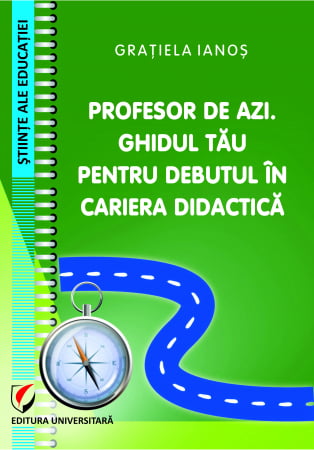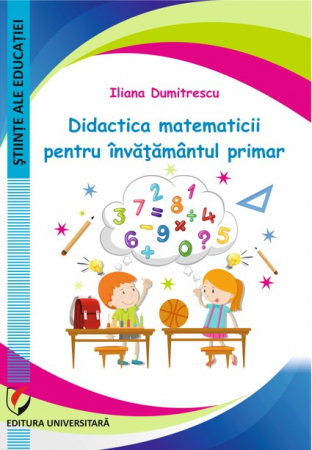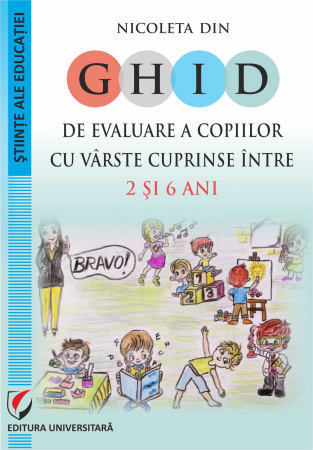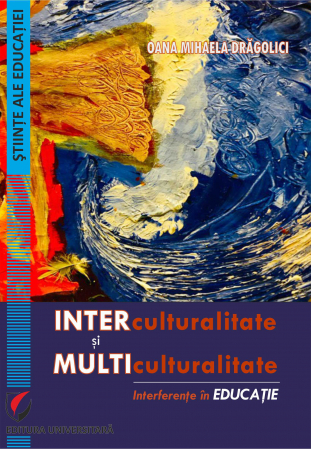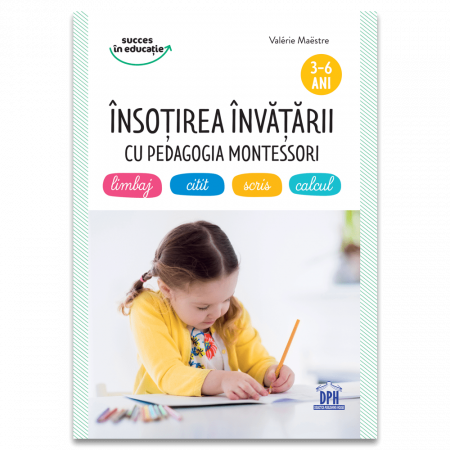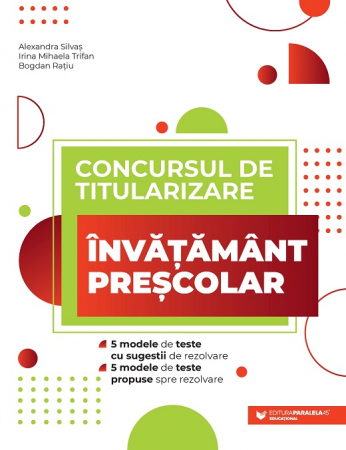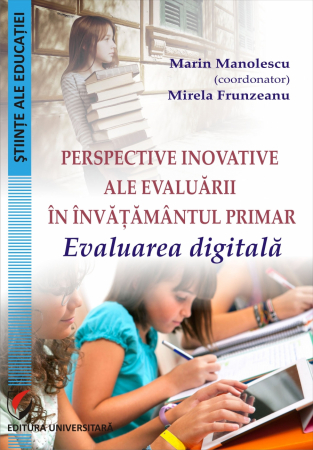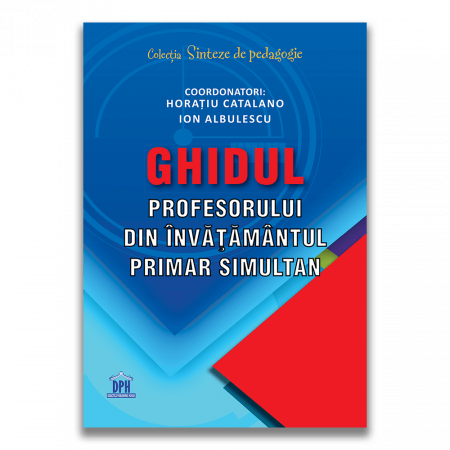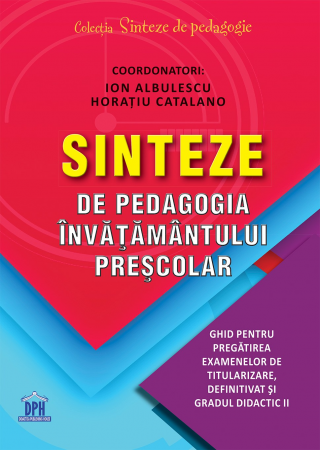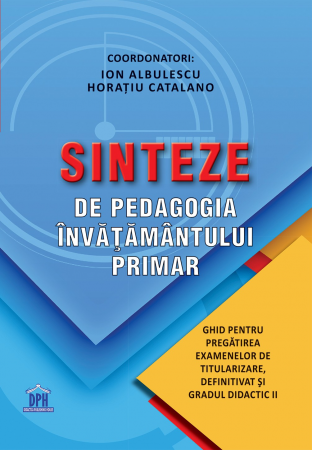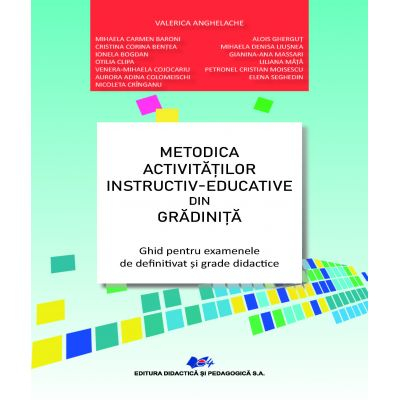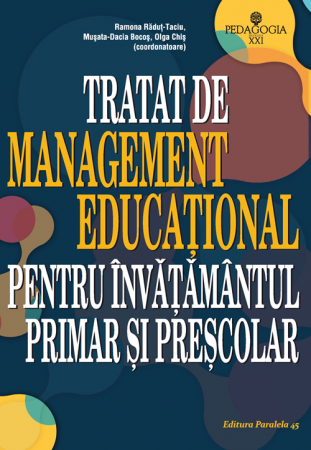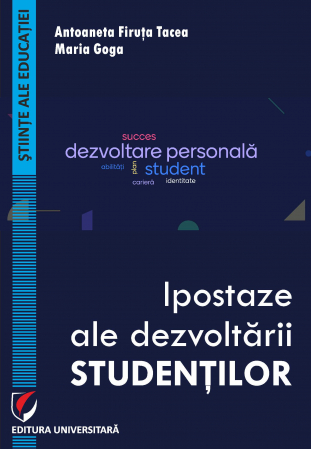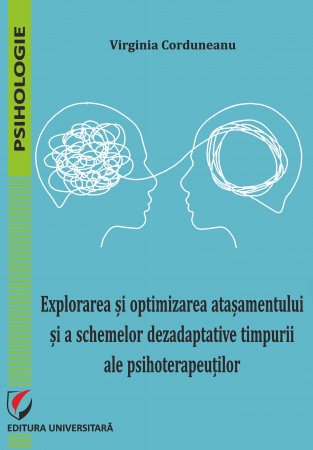6359.png) Indicative guide for planning instructional-educational activities in kindergarten. Level 5-6 years - large group. Auxiliary material - Nicoleta Stan
Indicative guide for planning instructional-educational activities in kindergarten. Level 5-6 years - large group. Auxiliary material - Nicoleta Stan
Publisher: Editura Universitara
Author: Nicoleta Stan
Edition: I
Pages: 282
Publisher year: 2023
ISBN: 978-606-28-1685-8
DOI: 10.5682/9786062816858
- Description
- Download (1)
- Authors
- Content
- More details
- Reviews (0)
The teaching staff must constantly adapt the theme and the content addressed to the group, the didactic strategies, the means of achievement, the ways of integrating the activities, to ensure the coherence between the activities carried out throughout the day/week (ADP, ALA, ADE) so that to show interest for the children and for them to learn for themselves in a fair and coherent way.
This guide brings to the attention of female educators orientation planning on experiential fields, the detailing of freely chosen activities and the entertaining/recreational/outdoor program and aspects regarding the activities for the development of personal skills. It also includes an annual planning by areas of development, with everything that involves the program of a day spent at kindergarten (from 8:00 a.m. to 6:00 p.m.) and planning for the School Otherwise program and for the Green Week, these can be used to complete the condition the teacher (the teacher's notebook).
Considering that the program of kindergartens in Romania is different, I considered it appropriate to use the symbols * and # to mark and at the same time to differentiate the activities that can be carried out within preschool education units with normal program and respectively with extended program, taking into account by the timetables that can be found also explained in the appendix of this guide:
* - normal schedule activities;
# - extended schedule activities.
Another important aspect that must be mentioned is that the planning of activities by modules in this guide takes into account the chronological order of activities (mathematical, psychomotor, musical, plastic activities, etc.), thus offering the children the opportunity to gradually acquire the contents presented by educators, during independent weeks or thematic projects that ensure the success of the acquisition of behaviors necessary for the development of later skills.
As we well know, creativity is nowadays considered to be part of the individual's personality, and in order to develop the creative potential of each child, the author, through the ideas presented, wants to broaden the horizons of preschool teachers regarding the theme of activities supported with preschoolers in large groups, to give the children the opportunity to enrich their knowledge and to activate their creative thinking to create products, ideas, based on the interweaving of new information with previously acquired information.
In order to support her colleagues, the author has developed a series of materials (sheets, PowerPoint presentations, tokens, etc.) which are posted on the website www.activatigigradinita.com, which the readers of this guide can find under the name of the activities listed in the planning indicative and can download them for free, by creating an account.
We mention that the assessments applied to preschoolers during the school year are present in the form of independent weeks, both at the beginning of the school year, in the first two weeks related to the initial assessment, and at the end of each module for the summative assessment.
In conclusion, we would like to appreciate the immeasurable work and dedication with which the educators exercise this beautiful profession, the multitude of qualities that you must possess from the perspective: the amount of information that you must convey to the children corresponding to all areas of development, the openness to the organization and development of extracurricular and extracurricular activities, communication and collaboration with all the educational factors involved in the education of preschoolers (community, parents, similar units, NGOs, etc.), all this so that the little men travel a smooth path towards an integral development desired by medium and long term society.
the author,
-
Indicative guide for planning instructional-educational activities in kindergarten. Level 5-6 years - large group. Auxiliary material
Download
INTRODUCTION / 13
EXPERIENTIAL AREAS IN PRESCHOOL EDUCATION/ 17
LANGUAGE AND COMMUNICATION FIELD (Language education) / 18
SCIENCE FIELD (Knowledge of the environment)/ 19
SCIENCE FIELD (Mathematical Activity)/ 20
HUMAN AND SOCIETY FIELD (Education for society)/ 21
HUMAN AND SOCIETY FIELD (Practical Activity)/ 21
AESTHETIC AND CREATIVE FIELD (Musical education)/ 26
AESTHETIC AND CREATIVE FIELD (Plastic education)/ 28
PSYCHOMOTRIC FIELD (Physical Education)/ 30
FREELY CHOSEN ACTIVITIES/ 34
ACTIVITIES FOR PERSONAL RECRUITMENT/ 38
CHARACTERIZATION OF THE LARGE GROUP (ORIGINAL)/ 39
AREAS OF DEVELOPMENT. DIMENSIONS. BEHAVIORS/ 41
CALENDAR PLANNING / 41
MODULE I / 45
How is it, was and will be here on Earth? / 46
"Incidents from Poiana Patru Anotimpuri" / 46
When, how and why does it happen? / 52
"Confessions from Poiana Patru Anotimpuri" / 52
Who am/are we? / 58
"Piciu's curiosities about the human body"/ 58
How do we express what we feel? / 64
"Today's emotions, tomorrow's emotions/ 64
When, how and why does it happen? / 70
1. "The story of autumn"/ 70
2. "Scented fruits and all vegetables"/ 75
How is it, was and will be here on Earth? / 82
"Piciu and his events"/ 82
MODULE II / 89
How is it, was and will be here on Earth? / 90
1. "Enescu and the chorus of the sun's rays"/ 90
2. "Mozart and the musical rainbow"/ 96
3. "Chopin and the ballad of the raindrops"/ 102
When, how and why does it happen? / 108
1. "1 December - the day of all Romanians"/ 108
2. "Surprises in boots"/ 114
3. "Christmas in Romanian lands"/ 120
How is it, was and will be here on Earth? / 126
"A musical Christmas story"/ 126
MODULE III / 133
When, how and why does it happen? / 134
"Winter has come!"/ 134
How is it, was and will be here on Earth? / 140
1. "Europe, our home!" / 140
2. "Travel in Asia" / 146
3. "Discovering Africa!" / 152
4. "Antarctica or Antarctica?" / 158
"Adventures with Piciu"/ 164
"Different school - Kids have talent"/ 170
MODULE IV / 175
How do we express what we feel? / 176
1. "Spring surprises"/ 176
2. "A flower and a hug for my mother!"/ 182
How is it, was and will be here on Earth? / 188
1. "Imaginary journey in the stone age"/ 188
2. "Piciu the paleontologist and his dinosaur friends" / 194
Who and how plans/organizes an activity? / two hundred
"Saving week, recycling week" / 200
How is it, was and will be here on Earth? / 206
"Piciu tells us..."/ 206
MODULE V / 213
"Green Week - On the lands of Romania" / 214
"How is it, was and will be here on Earth?" / 219
"What does Piciu travel with?"/ 219
What and how do I want to be? / 225
1. "Cook or confectioner?"/ 225
2. "Policeman or builder?" / 231
3. "Farmer or Veterinarian?" / 237
How is it, was and will be here on Earth? / 243
"The non-speakers, Piciu's friends"/ 243
How is it, was and will be here on Earth? / 249
"Piciu learns the solar system" / 249
Who and how plans/organizes an activity? / 255
"Piciu, the little merchant" / 255
When, how and why does it happen? / 261
"Cherries ripen in the summer"/ 261
Who and how plans/organizes an activity? / 267
"Holiday thoughts" / 267
APPENDIX 1 / 273
BIBLIOGRAPHY/ 274
WEBOGRAPHY / 278
Pedagogical design takes into account the appropriate actions for the proper functioning of the system and the development of the didactic process. The author of the present paper, Mrs. NICOLETA STAN, a teacher for preschool education, realizes a global design referring to an age level corresponding to the large group in the kindergarten.
Such works still exist in the preschool education circuit, which according to us is a good thing because the different approaches encourage the teacher to choose from each the parts that suit the group he leads; in this way, he prepares design documents suitable for his group, because, when selecting, he takes into account the particularities of the group he works with.
A so-called model design for several groups of children does not do much good for the education process, because the characteristics of children differ in certain aspects from one group to another.
The author of the material carefully followed the program for early education and begins the work with the important targets of this document, namely the behaviors to be formed in children and with the big schemes provided by the curriculum.
The activities designed below should lead to the formation of behaviors, but everything depends to the greatest extent on the one who leads the education process.
The structure of the school year has determined some changes in the didactic design. The annual planning is very similar to the material in the previous volume. Teaching staff have the necessary information to think and develop the other pedagogical documents: we refer to the establishment of projects for each week of the module, so that a project does not take place in two modules. In the last week of the project, its evaluation is planned and carried out in a mobilizing way for the children.
The evaluations take into account whether the six major themes have been covered and whether the behaviors established by the early education program have been formed in the children.
At the beginning of the small group, we also evaluate the level of behaviors provided in the curriculum for the pre-school stage, for the fact that those provided for the preschool stage are based on these behaviors.
We are also looking forward to the volume for the small group intended to complete the didactic design for preschool education and which will certainly suggest equally valuable elements necessary especially for beginning teaching staff and not only.
Univ. Assoc. Dr. Vasile Molan,
the University of Bucharest
Customer Support Monday - Friday, between 8.00 - 16.00
0745 200 718 0745 200 357 comenzi@editurauniversitara.ro
![Indicative guide for planning instructional-educational activities in kindergarten. Level 5-6 years - large group. Auxiliary material - Nicoleta Stan [1] Indicative guide for planning instructional-educational activities in kindergarten. Level 5-6 years - large group. Auxiliary material - Nicoleta Stan [1]](https://gomagcdn.ro/domains/editurauniversitara.ro/files/product/large/ghid-orientativ-pentru-planificarea-activitatilor-instructiv-educative-din-gradinita-nivel-5-6-ani-grupa-mare-material-auxiliar-809195.jpg)
